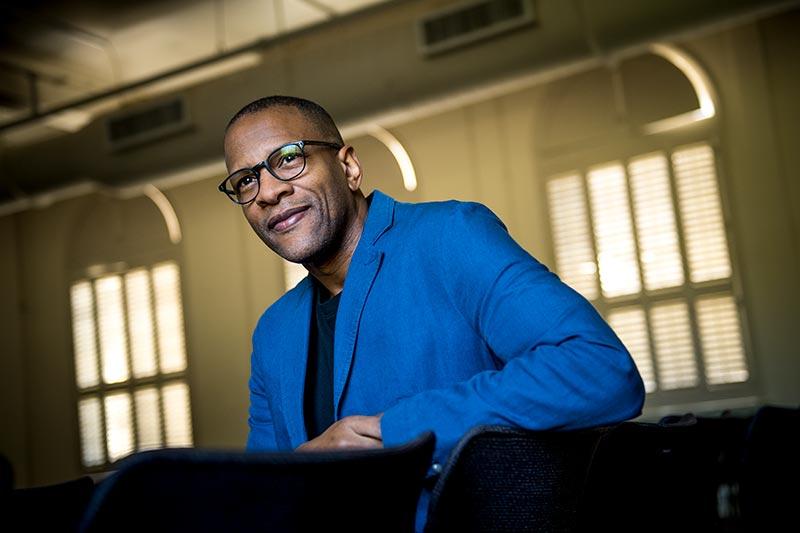Students explore the social impact of artificial intelligence
Artificial intelligence is at most people’s fingertips everyday. But we may not understand its implications and complexities.
“When you speak to Apple’s Siri or Amazon’s Alexa to retrieve info, or use Facebook, you’re actually engaging with artificial intelligence,” said Shawn Rickenbacker, a Taylor Senior Fellow at the Phyllis Taylor Center for Social Innovation and Design Thinking and Favrot Visiting Chair in the Tulane School of Architecture.
Artificial intelligence (AI) is technology that simulates human cognitive functions for problem-solving, according to Rickenbacker.
He is teaching a course — Humans + Machines: The Future Social Impact of Artificial Intelligence — this semester to explore the complexities of human interaction with artificial intelligence. It is a Social Innovation and Social Entrepreneurship (SISE) course.
Rickenbacker’s goal is to “introduce a new line of systems thinking across building and environmental issues.”
He’s collaborating with associate professors of computer science Brent Venable and Carola Wenk to bring awareness to how various AI models learn and operate. Students are encouraged to identify emerging trends in AI.
“The class examines real-world AI models such as targeted Facebook ads,” said Rickenbacker. Students also study associated data decision trees to understand algorithms methodology.
The class takes a cross-disciplinary approach. “We’re engaging in technological issues and using design thinking to tackle problems,” he said. “Diverse academic backgrounds such as economics, health sciences, psychology and architecture all contribute to the process.”
Working in teams, students examine case studies and conduct real-time testing to investigate how AI can be designed to avoid unintended consequences and harmful bias and further enhance equity and fairness.
Rickenbacker is an architect and creative technologist, whose work has been featured in The New York Times, CNN International and Global Architecture. He is co-founder of Urban Data + Design, a research and design consultancy that focuses on the convergence and impacts of digital information on physical space.
Rickenbacker also is teaching an upper-level and graduate design studio course in which students use data to create urban systems and architecture to address air pollution and climate change in New York City.
Like this article? Keep reading: Rules of the road for self-driving cars are more than staying in lanes

